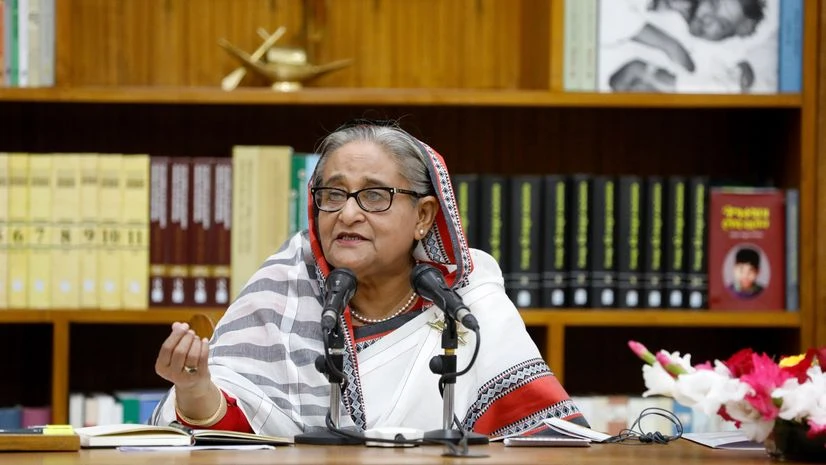Bangladesh's International Crimes Tribunal on Thursday reportedly issued arrest warrants for former prime minister Sheikh Hasina and 45 others, including senior Awami League leaders, in connection with alleged crimes against humanity during the recent mass student movement.
The tribunal, headed by its chairman Justice Md Golam Mortuza Majumdar, issued the orders after the prosecution submitted two petitions seeking arrest warrants for the accused, Mohammad Tajul Islam, chief prosecutor of the tribunal, told a Bangladeshi daily, The Daily Star.
"The court has... ordered the arrest of former prime minister Sheikh Hasina and to produce her in court on November 18," Islam told reporters on Thursday.
The tribunal has directed the relevant authorities to produce all 46 individuals, including the 77-year-old Hasina, before it after arresting them by November 18.
Hasina fled to India in August after she was toppled from power by student-led protests.
More From This Section
In August, Bangladesh's interim government announced its intention to prosecute those responsible for the deaths that occurred during the recent mass student protests against Hasina's government at the International Crimes Tribunal.
More than 230 people were killed in Bangladesh in the violent incidents that erupted nationwide following the fall of Hasina's government, bringing the total death toll to over 600. The protests, which began in mid-July, were initially sparked by a controversial quota system in government jobs.
Since fleeing Bangladesh, Hasina has not been seen in public. Her last official whereabouts were reported to be a military airbase near New Delhi.
Hasina's presence in India has complicated ties with Bangladesh, where informal calls for her extradition have been made by various quarters. Dhaka has also revoked her diplomatic passport.
While India and Bangladesh have a bilateral extradition treaty, which would permit Hasina to return to face criminal trial, a clause in the treaty says that extradition might be refused if the offence is of a "political character".
Hasina's 15-year rule was marred by concerns over widespread human rights abuses, including the mass detention and extrajudicial killings of her political opponents.
In fact, it was Hasina's government that had created the International Crimes Tribunal in 2010 to probe atrocities during the 1971 independence war from Pakistan.
The tribunal proved to be deeply contentious, with the United Nations and rights groups criticising its procedural shortcomings. It was widely seen as a means for Hasina to eliminate her political opponents.
Apart from the latest development, several cases accusing Hasina of orchestrating the "mass murder" of protesters are being probed by the court.
(With agency input)

)